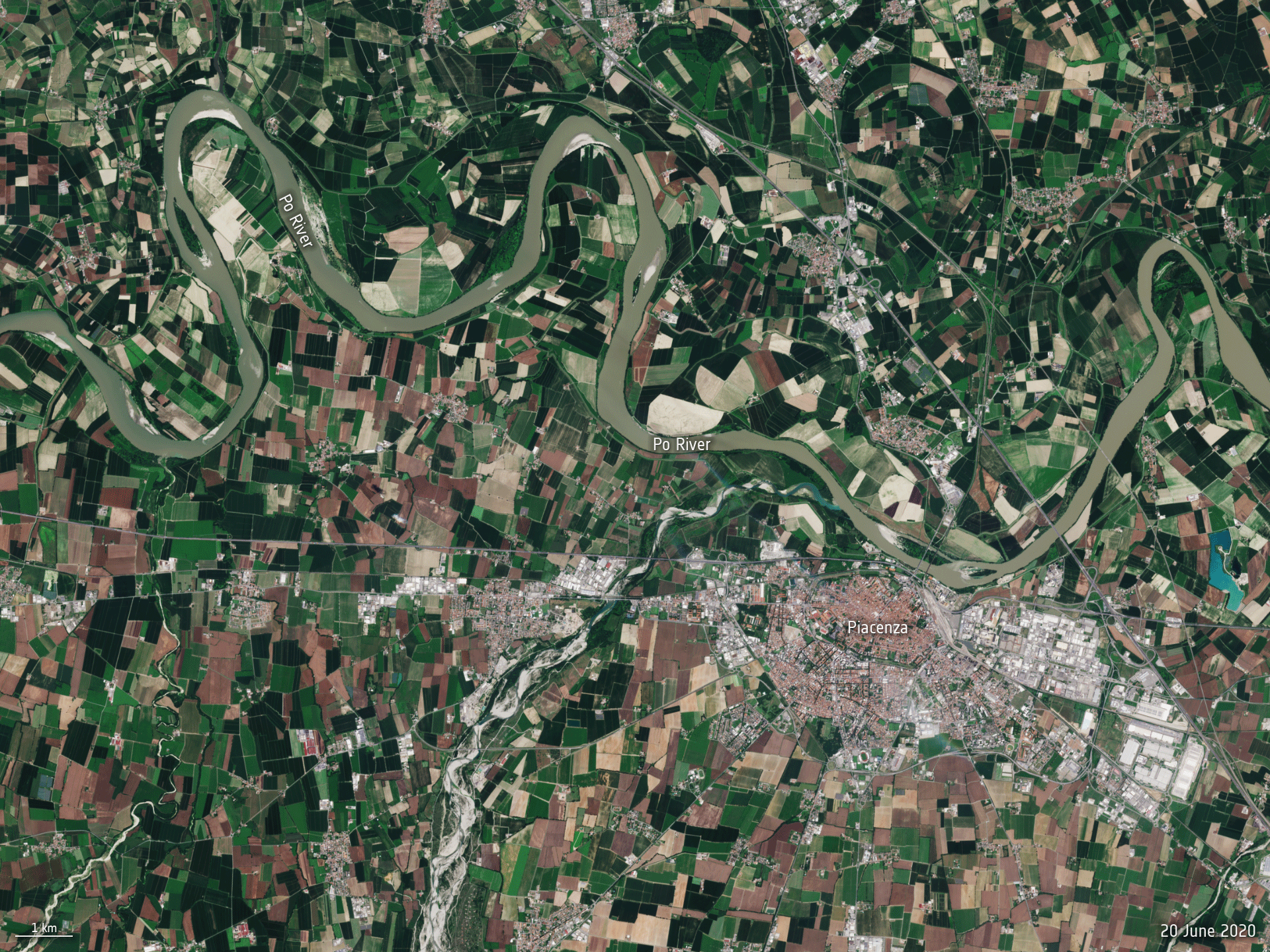The Po River, the longest river in Italy, is hitting record low water levels after months without heavy rainfall. This Copernicus Sentinel-2 animation shows a part of the Po Valley, near Piacenza, and reveals how the river has significantly shrunk between June 2020 and June 2022.
Stretching from the Alps in the northwest to the Adriatic Sea on the east coast, the vast waterway is a vital source of water for several regions. It is used for drinking water, nourishing vast swathes of agricultural land, as well as producing hydroelectric power across northern Italy.
Water in the Po Valley has now dropped to record-low levels, partly as a result of the lack of rainfall that northern Italy has been suffering, as well as high temperatures and a lack of snow in the mountains that feed the river. Many of these areas have now been without any rain at all for more than 110 days, according to the Po River Observatory.
The Po River is normally a wide stretch of murky water (as seen in the June 2020 acquisition) but has now dried up with large expanses of sand exposed (as seen in the June 2022 acquisition).
The Po Valley is the most important agricultural area in the country, as it produces around 40% of Italy’s food including wheat, rice and tomatoes. With the ongoing drought, farmers are struggling to keep crops irrigated and many towns in the Po Valley have been asked to ration water during the night amidst the drought.
Benjamin Koetz, Head of ESA’s Sustainable Initiatives Office, said, “According to the United Nations Food and Agriculture Organization, agriculture is consuming up to 70% of freshwater and considering the increasing water scarcity the use of water needs to be more efficient in this sector. For this purpose, ESA is preparing the Land Surface Temperature Monitoring Mission as part of the Copernicus Expansion Missions which will allow us to monitor the evapotranspiration of crops at a field level and, with that, support sustainable irrigation practices.”
According to new results published by an ESA-funded project called CAREHeat, the Mediterranean Sea is currently enduring a marine heatwave with temperatures in May 2022 4°C higher than the average for the 1985-2005 period. According to the findings, the surface water temperature hit peaks of over 23°C.
The project, which features the participation of Italian research agencies such as the National Agency for New Technology, Energy and Sustainable Economic Development (ENEA) and the National Research Council (CNR), seeks to develop strategies to identify marine heat waves and determine their effect on marine ecosystems and economic activities such as fishing.



 Image:
The Po River, the longest river in Italy, is hitting record low water levels after months without heavy rainfall. This Copernicus Sentinel-2 animation reveals how the river has significantly shrunk between June 2020 and June 2022.
Image:
The Po River, the longest river in Italy, is hitting record low water levels after months without heavy rainfall. This Copernicus Sentinel-2 animation reveals how the river has significantly shrunk between June 2020 and June 2022.